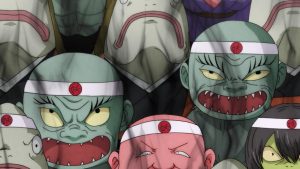 This is obviously a pretty historical occasion for any number of reasons. Any time you come to an end of a series that’s been running for two years, that’s a big deal for an anime viewer. For me, Gegege no Kitarou is the second-longest series I’ve ever covered (behind Hunter X Hunter 2011), even if you account for multiple-season franchises like Boku no Hero Academia. This has become quite an important series for me, a part of my routine, and I’m really going to miss it. A lot.
This is obviously a pretty historical occasion for any number of reasons. Any time you come to an end of a series that’s been running for two years, that’s a big deal for an anime viewer. For me, Gegege no Kitarou is the second-longest series I’ve ever covered (behind Hunter X Hunter 2011), even if you account for multiple-season franchises like Boku no Hero Academia. This has become quite an important series for me, a part of my routine, and I’m really going to miss it. A lot.
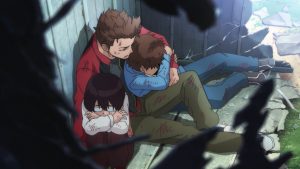 It seems too minimalist to frame this reflection primarily through the lens of the final episode itself, or even the final arc. The overall experience of watching – and writing about – Gegege no Kitarou is far more important to me. Yet the finale arc was certainly good. It wasn’t the series’ finest work, but it was a fitting end even if it colored inside the lines a bit too much. There were a couple of genuinely emotional moments for me this week, most notably when Mana offered up her memories in exchange for Kitarou’s, but also when a country full of idiots finally realized who it was that had been sacrificing everything for them for so long. It reminded me of my favorite scene from BnHA in fact, at the close of the Hideout Raid arc when the world showed its appreciation to All Might.
It seems too minimalist to frame this reflection primarily through the lens of the final episode itself, or even the final arc. The overall experience of watching – and writing about – Gegege no Kitarou is far more important to me. Yet the finale arc was certainly good. It wasn’t the series’ finest work, but it was a fitting end even if it colored inside the lines a bit too much. There were a couple of genuinely emotional moments for me this week, most notably when Mana offered up her memories in exchange for Kitarou’s, but also when a country full of idiots finally realized who it was that had been sacrificing everything for them for so long. It reminded me of my favorite scene from BnHA in fact, at the close of the Hideout Raid arc when the world showed its appreciation to All Might.
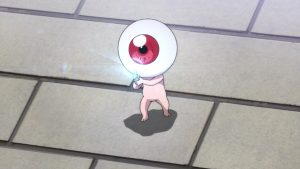 I think to understand Kitarou’s dilemma as a character, you have to view him through the context of Mizuki Shigeru’s life experience. This was an idealistic young man sent off to fight a war on behalf of a cause he knew was evil, who lost his left arm (he was left-handed) in service to that cause. When he returned home he learned to draw with his right hand, and was forced to pen propaganda in service of those who’d sent him to war. He had to learn how to send a message he believed in without his superiors (and censors) realizing what he was up to.
I think to understand Kitarou’s dilemma as a character, you have to view him through the context of Mizuki Shigeru’s life experience. This was an idealistic young man sent off to fight a war on behalf of a cause he knew was evil, who lost his left arm (he was left-handed) in service to that cause. When he returned home he learned to draw with his right hand, and was forced to pen propaganda in service of those who’d sent him to war. He had to learn how to send a message he believed in without his superiors (and censors) realizing what he was up to.
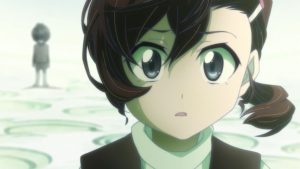 Eventually of course Mizuki gained a measure of individual prominence, and Japan a measure of intellectual freedom, and Mizuki-sensei could more openly make the statements he wanted to make. But he never forgot what it was like to have to fight for the wrong cause, and to be forced to lie to support it. His experience in war changed him – not just his agonizing injury and repeated brushes with death, but coming to understand other cultures and becoming fascinated by their belief systems. And he eventually applied his skills to subtly inserting his messages in material directed at children – not just for the eyes of the parents, but the children too.
Eventually of course Mizuki gained a measure of individual prominence, and Japan a measure of intellectual freedom, and Mizuki-sensei could more openly make the statements he wanted to make. But he never forgot what it was like to have to fight for the wrong cause, and to be forced to lie to support it. His experience in war changed him – not just his agonizing injury and repeated brushes with death, but coming to understand other cultures and becoming fascinated by their belief systems. And he eventually applied his skills to subtly inserting his messages in material directed at children – not just for the eyes of the parents, but the children too.
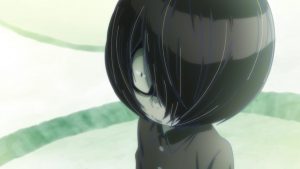 In that light, I think Kitarou’s struggle as an idealist in a world full of narrow-minded nationalists and xenophobes (on both sides) clearly comes from the heart. And as with any updating of the GGGnK franchise, the onus was on its creators to deliver something purposed to appeal to a contemporary audience while remaining faithful to Mizuki’s ideals. And that, I think, is this version’s greatest triumph. Over the course of 97 episodes it certainly wasn’t perfect. There were plenty of peaks and valleys, and even the occasional slip into tone-deaf cultural chauvinism. But for the most part it delivered a consistent and eloquent argument on behalf of Mizuki’s subversive ideals while managing to be roundly entertaining.
In that light, I think Kitarou’s struggle as an idealist in a world full of narrow-minded nationalists and xenophobes (on both sides) clearly comes from the heart. And as with any updating of the GGGnK franchise, the onus was on its creators to deliver something purposed to appeal to a contemporary audience while remaining faithful to Mizuki’s ideals. And that, I think, is this version’s greatest triumph. Over the course of 97 episodes it certainly wasn’t perfect. There were plenty of peaks and valleys, and even the occasional slip into tone-deaf cultural chauvinism. But for the most part it delivered a consistent and eloquent argument on behalf of Mizuki’s subversive ideals while managing to be roundly entertaining.
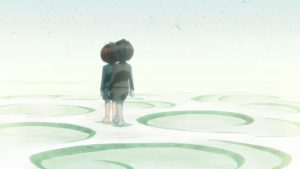 Gegege no Kitarou 2018 is such a long series, and one with so many frankly indifferent episodes, that I tend to think of it in terms of the standouts. There were many, but there are two that most readily spring to mind. The first was the utterly magical Episode 4 – the Ghibli-caliber masterpiece that stamped this as a series I needed to take a lot more seriously. And the second was Episode 20. I’ve already spilled a lot of ink on that one, but it remains for me one of the finest anime episodes ever created – without a question in my all-time top 10. And a more profound and beautiful homage to Mizuki Shigeru’s beliefs I cannot imagine.
Gegege no Kitarou 2018 is such a long series, and one with so many frankly indifferent episodes, that I tend to think of it in terms of the standouts. There were many, but there are two that most readily spring to mind. The first was the utterly magical Episode 4 – the Ghibli-caliber masterpiece that stamped this as a series I needed to take a lot more seriously. And the second was Episode 20. I’ve already spilled a lot of ink on that one, but it remains for me one of the finest anime episodes ever created – without a question in my all-time top 10. And a more profound and beautiful homage to Mizuki Shigeru’s beliefs I cannot imagine.
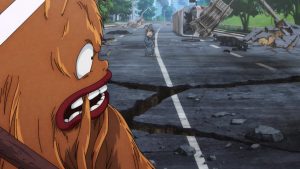 There’s so much to praise about this series, and we don’t have to pretend the flaws don’t exist – I acknowledge them. Over nearly 100 episodes there were numerous mediocre ones and a couple of outright clunkers. But the batting average was, on the whole, quite high. The production values were stunning most of the time, befitting Gegege no Kitarou’s place as one of Japan’s most popular franchises. The introduction of Inuyama Mana was pure genius, and hers was only one of numerous superb performances by the cast. The regulars were uniformly great, and the endless parade of legendary guest stars was one of the real joys of experiencing the series. It was modern and topical while remaining unrelentingly faithful to the source.
There’s so much to praise about this series, and we don’t have to pretend the flaws don’t exist – I acknowledge them. Over nearly 100 episodes there were numerous mediocre ones and a couple of outright clunkers. But the batting average was, on the whole, quite high. The production values were stunning most of the time, befitting Gegege no Kitarou’s place as one of Japan’s most popular franchises. The introduction of Inuyama Mana was pure genius, and hers was only one of numerous superb performances by the cast. The regulars were uniformly great, and the endless parade of legendary guest stars was one of the real joys of experiencing the series. It was modern and topical while remaining unrelentingly faithful to the source.
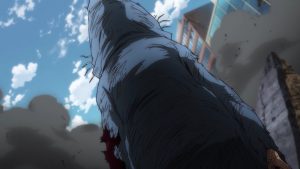 So given all that, if the ending was more “sasuga” than shock and awe I’m fine with that. It was perfectly right that it should come down to Mana saving Kitarou, sacrificing for him the way he’s sacrificed for others throughout his long life. No deference was given the to Sunday morning time slot – the horrors of war, which Mizuki hated above all things, are shown with no punches pulled. And if the “T’s” were crossed and “i’s” dotted for the most part, Nurarihyon’s fate was an interesting twist. In the end he was an extremist, a fanatical adherent to a cause, and he chose a fate befitting his belief system. As with so much of the social commentary in Gegege no Kitarou 2018, make of that what you will.
So given all that, if the ending was more “sasuga” than shock and awe I’m fine with that. It was perfectly right that it should come down to Mana saving Kitarou, sacrificing for him the way he’s sacrificed for others throughout his long life. No deference was given the to Sunday morning time slot – the horrors of war, which Mizuki hated above all things, are shown with no punches pulled. And if the “T’s” were crossed and “i’s” dotted for the most part, Nurarihyon’s fate was an interesting twist. In the end he was an extremist, a fanatical adherent to a cause, and he chose a fate befitting his belief system. As with so much of the social commentary in Gegege no Kitarou 2018, make of that what you will.
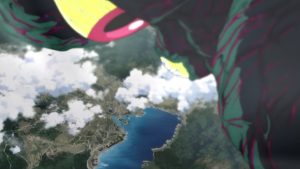 One thing I really love about the this franchise is that it espouses idealism without glossing over what a quixotic path it is. Mizuki was many things but naive was not among them, and his writing reflects that. It’s certainly not easy to be an idealist in Japan in 2020, and in that sense this series lends itself to revival more than most of its peers. Toei and the team who produced it understood that on a fundamental level, and that’s why it worked as well as it did. The future is uncertain, both for anime and for the world – we’ll probably see Gegege no Kitarou return in some form in the future. But whether that happens or not this series excelled as a steward of Mizuki Shigeru’s creation, and if it were to be the final incarnation of it, I believe it’s one Mizuki would thoroughly have approved of.
One thing I really love about the this franchise is that it espouses idealism without glossing over what a quixotic path it is. Mizuki was many things but naive was not among them, and his writing reflects that. It’s certainly not easy to be an idealist in Japan in 2020, and in that sense this series lends itself to revival more than most of its peers. Toei and the team who produced it understood that on a fundamental level, and that’s why it worked as well as it did. The future is uncertain, both for anime and for the world – we’ll probably see Gegege no Kitarou return in some form in the future. But whether that happens or not this series excelled as a steward of Mizuki Shigeru’s creation, and if it were to be the final incarnation of it, I believe it’s one Mizuki would thoroughly have approved of.


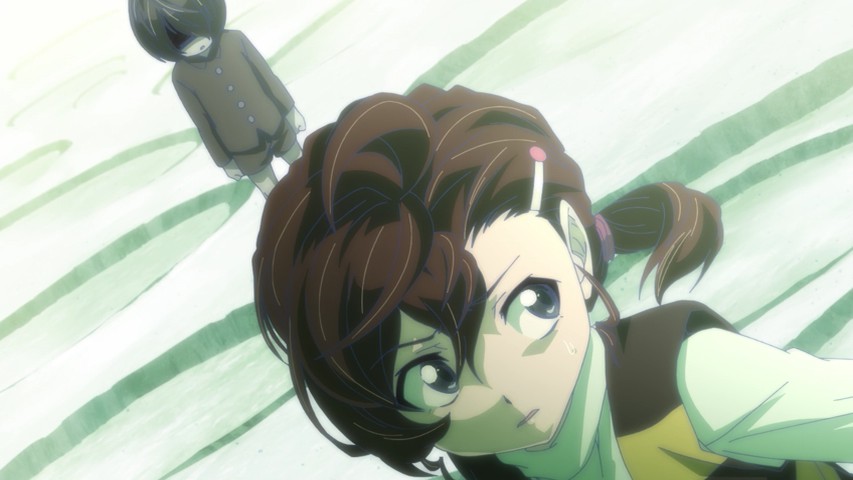
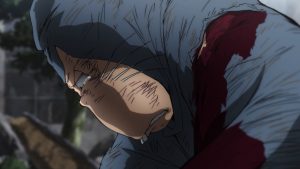
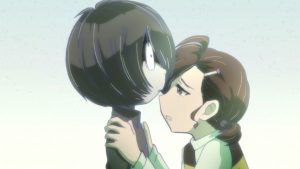
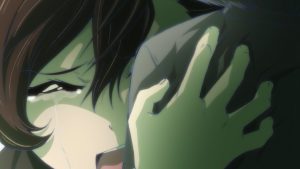
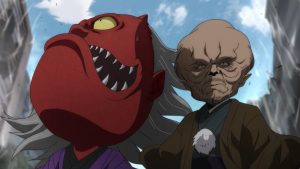
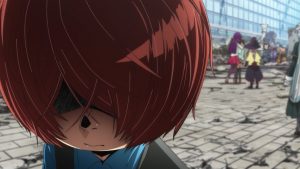
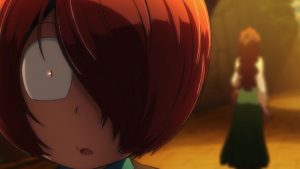
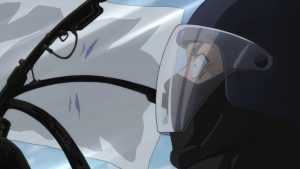
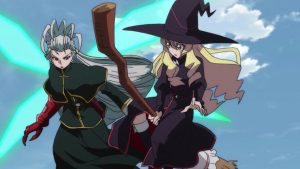
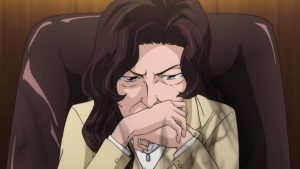
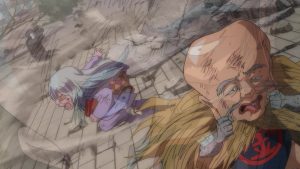
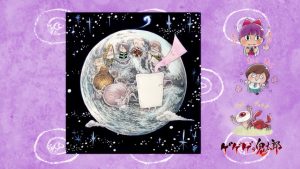
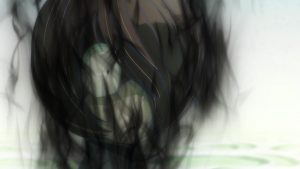
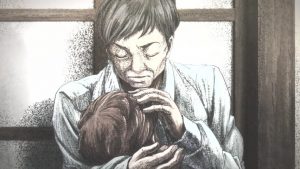
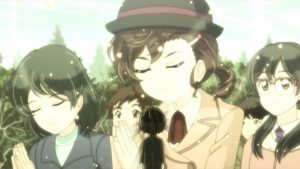
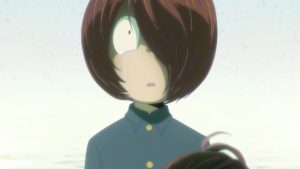
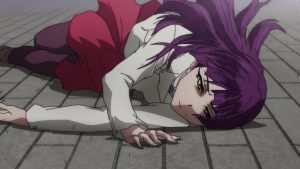
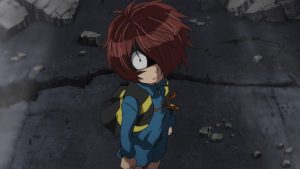
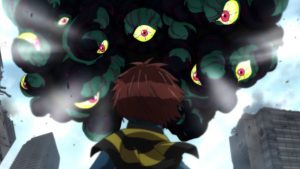
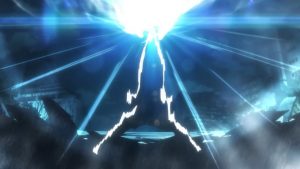
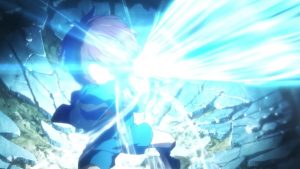
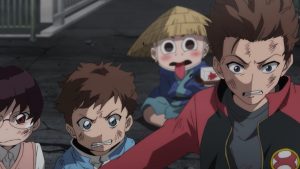
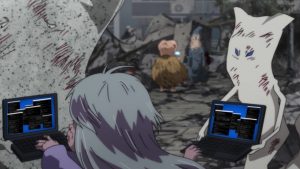
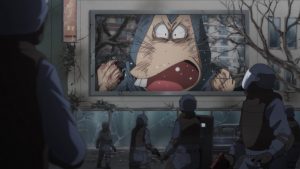

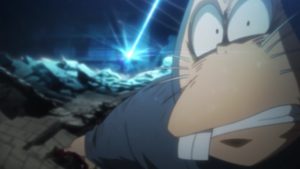
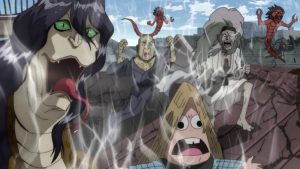
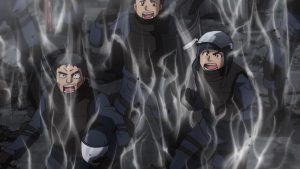

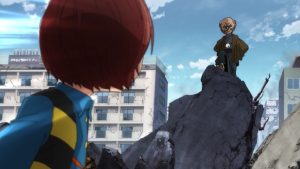
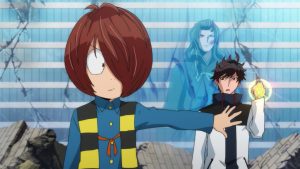
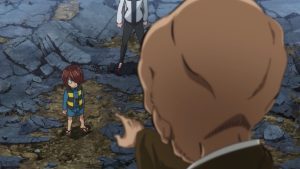
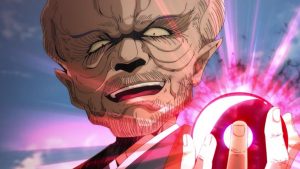
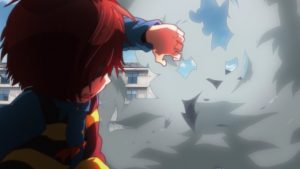
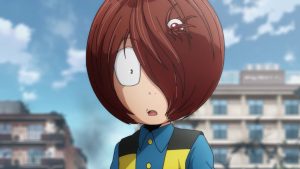
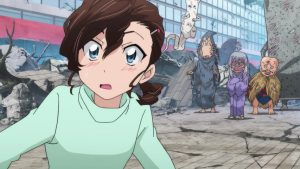
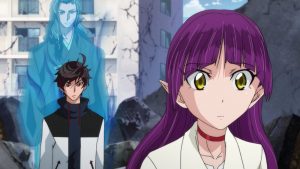
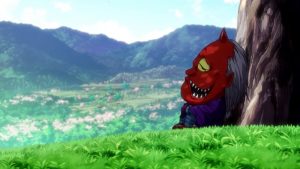
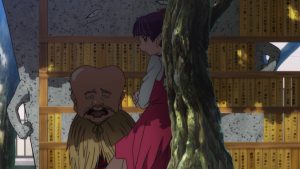
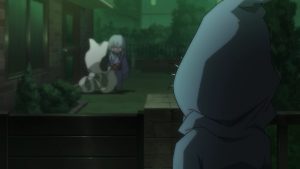
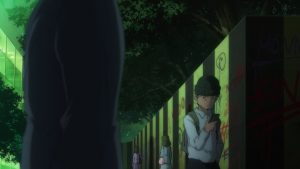
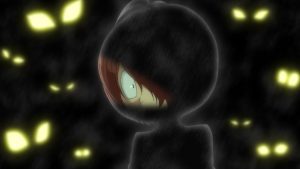
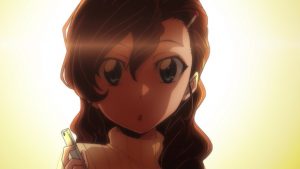
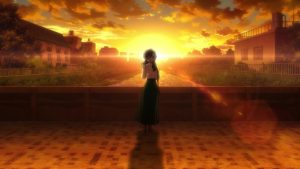
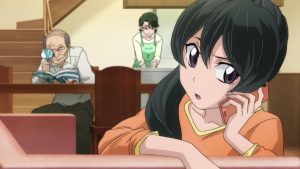
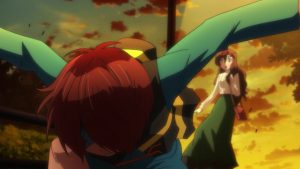
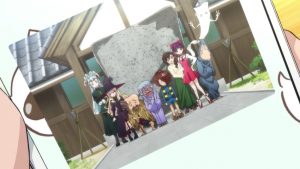

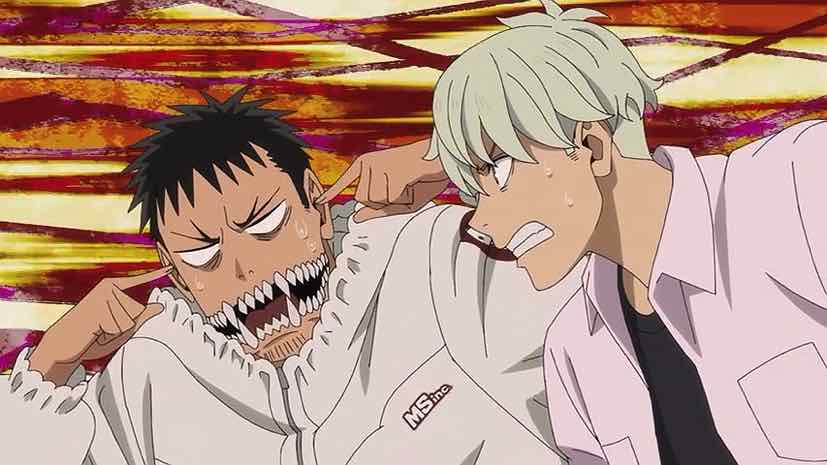
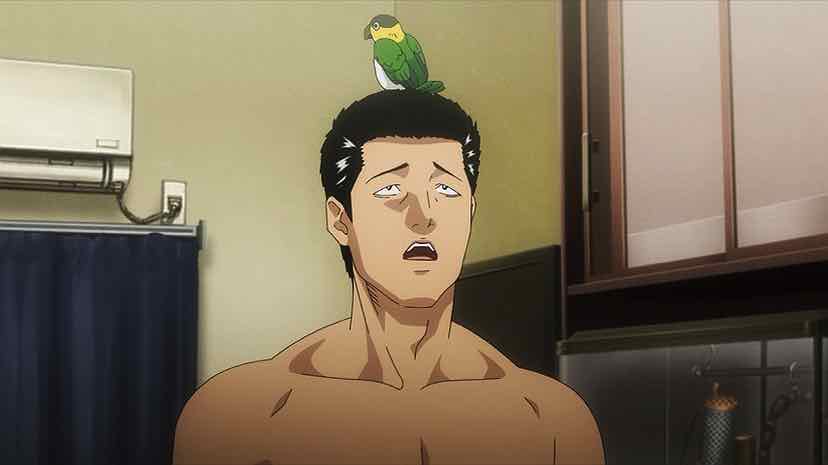
Earthlingzing
March 29, 2020 at 5:59 pmHuh, I went and checked and Yowamushi Pedal is actually longer at 112 episodes.
Guardian Enzo
March 29, 2020 at 7:43 pmDamn your eyes!
Jindujun93
March 30, 2020 at 6:21 amI mean, so is Space Brothers at 99 episodes, even if only barely, haha.
Aera
March 29, 2020 at 9:22 pmSo, this is it. This is finally the end. I can’t believe that this series is ending, and my Sunday feels much emptier without this series for sure. However, the final episode managed to wrap the series up with a little bang.
There were bits that made me feel the final episode felt a bit anticlimactic, but just like what you said, the overall experience in watching Gegege no Kitaro is what really matters. I love this series a lot. Just like you, this series has become an inseparable part of my Sunday.
That scene when Kitaro questioning his ideals with Mana reminded me a lot of Conrevo, for some reason.
Thank you very much Enzo, for covering this series until the very end, without missing any single episode. Even though I rarely leave my comment anymore, but I’m always reading your review after I finished watching the episode. And I’m glad that people are becoming more interested in watching this series as time goes by.
I first visited your blog when you were blogging Conrevo season 2. And later, I found your review about gegege no kitaro after its premiere. Your reviews are really fun to read, and it’s interesting to know your opinion about each and every episode, and finding out some stuffs that I missed. I’m really happy that you grow to love this series so much to the point of making reviews of this series every week, despite the ups and downs.
Overall, Gegege no Kitaro (2018) was a fantastically wild ride. And I’m really gonna miss it.
Thank you very much for following and reviewing this series until the very end, Enzo. I’m really glad that you enjoy watching this series until the last episode.
Guardian Enzo
March 29, 2020 at 10:33 pmAera, that’s one of the nicest comments I’ve gotten in ages and I really appreciate it. Thank you.
ConRevo is an interesting comparison actually, and one I hadn’t considered before now. In point of fact GGGnK (both Mizuki’s version and this one) are extremely political by manga and especially anime standards, and ConRevo was probably among the most overtly political anime of the past decade.
Armitage
March 29, 2020 at 10:35 pmThis was a nice ending to the series. After sticking with it for 2 years, I just wanted for it to not completely jump ship and that’s all. Which it wouldn’t have, of course. It’s Kitarou. It’s always been watchable even at its lowest lows. All in all, this was a fitting farewell to the series, indeed.
Also, I’d agree that Ep. 20 is absolutely stunning. Will it make my all-time top 10? Maybe not. Though, it’s still amazing in its own right. But the fact that you’d place it in your top 10 anime episodes ever got me thinking, what would the other 9 be? I can ponder a guess for which series might feature on there. But it’ll be interesting to see the list all laid out. A prospective idea for a future post, maybe? (:
Guardian Enzo
March 30, 2020 at 12:46 amI’ve had many requests for that over the years but it would be a nightmare list to try and figure out.
Zol
March 30, 2020 at 1:04 amSo, now it is over. I’m surprised at how emotional I got, thinking about not to be able to look forward to Sunday morning like I did for about 21 months (began following the series in early July 2018). I never would have expected this series to take such a prominent place both in my heart and in my inner anime library. T
In 2018, I came around two great (anime related) things. GeGeGe no Kitaro is one of them, the other one is this website. I only found this place because I was bewildered by the lack of recognition for this series and was looking around for reviews. Thus, I found not only a great weekly review of Kitaro, but a place which is full of interesting material about anime. After a while, I anticipated your review of the newest episode almost as much as I anticipated the episode itself. And while the series that brought me here is over now, I’m looking forward for all the other reviews and opinions on still running and future series.
Guardian Enzo
March 30, 2020 at 10:29 amThanks so much for your very kind words! On some level I’ve always enjoyed covering “obscure” (it seems absurd to call GGGnK that living in Japan, but there you go) series more than very popular ones. I can pretty much bank on no major website covering Major, for example – but does it really matter if one more covers the latest SAO McSequel?
Collectr
April 3, 2020 at 8:01 amI always liked the ‘up and down’ nature of GeGeGe at its episodic best. (I was less a fan of the ‘through plot’ arcs, but that’s just a personal preference.) It leaves the same sort of hole that the departure of Shirokuma Cafe did – the loss of something that invariably cheered me up, no matter what the situation (and it’s terrible now). Toei did a terrific job with the show, and their decisions – on story and casting – honored the traditions of the franchise while bringing it subtly up to date. The whole voice cast was outstanding, and the casting of Nozawa Masako, the original Kitaro, as Daddy Eyeball was genius. The circle is indeed unbroken.
Thanks for your coverage. The show wasn’t taken seriously in the fan community, except here.
Guardian Enzo
April 3, 2020 at 8:56 amGood comparison. I still miss that show.
Always feel like covering a show no one else is covering makes a bigger difference. That’s not why I do it but it is an important side effect.
ElCid
April 14, 2020 at 1:41 pmHonestly, I loved this conclusion, except for one big thing at the very end: Mana forgetting everything that had happened over the past two years. First off, it was just really uncomfortable watching and hearing her actually, seriously freaking out because as far as she knew, she’d blacked out sometime around April 2018 and woke up surrounded by monsters in the middle of a destroyed city and two years had passed that she completely missed. Second, I’ve never been a fan of the memory loss route for anime endings, because it makes the whole journey there feel moot. And third, while she eventually did remember everything and that makes me happy in a relieved sort of way, it still took 10 years, which is a pretty long time, and to make matters worse, it seems that in that time, people have somehow started to forget about yokai again. Despite remnants of the destruction still being seen, despite everything that happened and people talking about recent yokai attacks, there are other people we hear writing off the yokai war as a “strange weather phenomenon” and scoffing at the suggestion that yokai are real, and we see yokai slinking around invisibly and hiding away in the woods like they did before. We’re not even given any indication that the yokai who successfully integrated themselves into human society like Yuki and the Yokai Apartment tenants are still there. It all felt like such a depressing conclusion, and it also felt a bit rushed to boot.
That aside though, I still left the final episode thinking this was easily not only the best Kitaro series yet, but also one of the greatest anime of the past decade. I’m gonna miss watching it every week… ;w;
Guardian Enzo
April 14, 2020 at 2:40 pmI already do. My Sundays aren’t the same.
I’m with you as far as the memory loss thing being overused, but I would say that at least this time they justified it with the plot itself – Mana had to give up her memories to get Kitarou’s back. That seems thematically consistent with the mythology to me. When it comes to anything with the underworld there’s always some sort of equivalent exchange involved in any bargain. If anything, I think it would have been more poignant if she’d never remembered.
I don’t know if I read the ending quite as pessimistically as you did, but that’s certainly a valid interpetation.
ElCid
April 15, 2020 at 4:42 amI really hope it isn’t as bad as some of the dialogue and imagery and the lack of certain confirmations makes it out to be. I don’t want to think all the progress made over the series’ run got completely undone, maybe some people were just in denial about what had happened, but it’s hard not to think that’s what happened. :c And honestly, Mana finally remembering everything, even if it took so long, is honestly what kept the ending from being a 100% downer for me, so I’m happy it happened at all.
I think what especially throws me though is that anyone could somehow write off the events of the last several episodes as a weather phenomenon. Yeah, okay, a huge screaming eyeball monster appeared in the upper atmosphere and rained death and destruction on the world, killing your own country’s prime minister and her whole cabinet in the process, your government was sending out death squads to exterminate an “enemy” that was very clearly in the city, yokai were already becoming an accepted reality before that, but sure, it was just the weather.
Also, it only really dawned on me today that, given the pattern, we have to wait another 10 years or so for the next Kitaro series, and making this even sadder is the knowledge that it may not be quite as amazing as this one ended up being…
Guardian Enzo
April 15, 2020 at 7:40 amOr maybe it will be even better – who knows?
It struck me that having Mana remember after a decade was a means to set her up to be part of the next series, assuming we follow the usual 11-year cycle.
ElCid
April 15, 2020 at 2:30 pmI doubt it, unless they break the cycle and start the next one from where the last one left off. Each one is its own continuity, after all.
Matías Nicolás Delgado
October 20, 2020 at 7:38 amIt’s sad when a good show ended after featuring great plots and twists. But the memories of that good moments will stay forever in the mind of the audience.
Guardian Enzo
October 20, 2020 at 11:50 amYup. Until the next version in 2029, anyway.